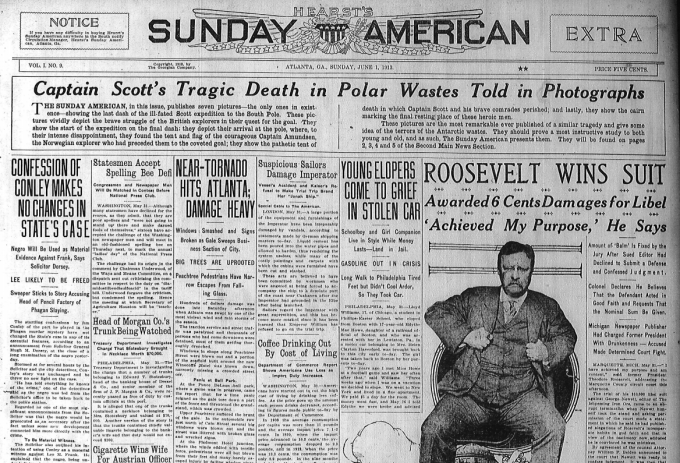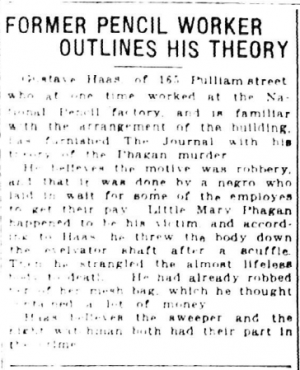 Another in our series of new transcriptions of contemporary articles on the Leo Frank case.
Another in our series of new transcriptions of contemporary articles on the Leo Frank case.
The Atlanta Georgian
Sunday, July 6, 1913
*Editor’s Note: See insert article, “Decisions Which May Aid Defense of Frank”, at the conclusion of this post.
Frank Expects Freedom by Breaking Down Accuser’s Testimony, and State a Conviction by Establishing Truth of Statements.
BY AN OLD POLICE REPORTER.
The developments in the Phagan case have been of late highly significant and interesting.
During the past week, it became evident that the very heart and soul of both the prosecution and the defense is to center largely about the negro, James Conley.
He is at once apparently the hope and the despair of both sides to the contest!
This circumstance, however, while tending to add much to the dramatic and the uncertain, in so far as the outcome is concerned, is not by any means an unusual thing in cases of this kind.
It frequently happens in mysterious murder cases that both the State and the defense must pin their faith to one and the same witness.
Of late there has been some talk of the Grand Jury indicting Conley, even over the Solicitor General’s head, which, of course, it would have a perfect right to do.
The thought occurred to me some time ago that the case might take that direction, but in the article in which that point was discussed, I mentioned it incidentally, rather than as a likely thing.
Indictment may Mean Much.

 Another in
Another in  Another in
Another in  Another in
Another in  Another in
Another in  Another in
Another in  Another in
Another in  Another in
Another in  Another in
Another in  Another in
Another in  Another in
Another in  Another in
Another in  Another in
Another in  Another in
Another in  Another in
Another in  Another in
Another in  Another in
Another in  Another in
Another in 
